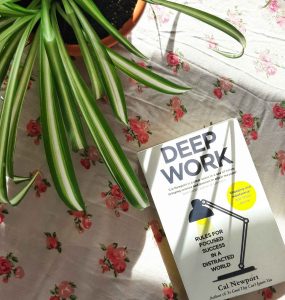We all have things we do in our life that don’t serve us well. Sometimes they are big, obvious things and other times they are seemingly insignificant. Even the things that seem small and insignificant can have a major impact on your well-being. Whether they are big or small, self-destructive habits can wreak havoc.
 For many people, these habits will seem benign, and we wonder if they make that much of a difference. In reality, doing these things once in a while may not cause any issues. The problem comes when these little actions become habits. Engaging in these things repetitively is what causes changes in how we feel, what we think, and even how we interact with people.
For many people, these habits will seem benign, and we wonder if they make that much of a difference. In reality, doing these things once in a while may not cause any issues. The problem comes when these little actions become habits. Engaging in these things repetitively is what causes changes in how we feel, what we think, and even how we interact with people.
As you read through these habits, thoughtfully consider whether they characterize your life. Just because they are on the list doesn’t mean these are inherently bad things. Consider each one and ask yourself these questions:
- Do I do this?
- How often?
- How do I feel when I engage in this?
- How does the idea of eliminating this feel?
Each of these questions gives insight into whether it is a habit in your life and how self-destructive it may be for you. The last question about eliminating the habit can provide a lot of insight. If the idea of eliminating the behavior feels uncomfortable, difficult, or scary, chances are it is a deeply ingrained habit that is not serving you well.
Self-destructive habits to avoid.
Consider each of these sneaky self-destructive habits and the role they play in your physical, emotional, mental, and spiritual health.
Endless scrolling.
Phones have made it so easy to get information, connect with people, get work done, and be entertained. The danger, however, is that people spend too much time scrolling. Seemingly endless scrolling without purpose or intention can be self-destructive.
Hitting the snooze button.
It can feel like the alarm goes off too early every morning, and most alarm clocks make it easy to get a few extra minutes of sleep. When you hit the snooze button, especially if you do it more than once, it can be more disruptive to your natural sleep/wake cycles. Those few extra minutes are not serving you well, especially if hitting snooze becomes a habit. Instead, set your alarm for the time you need to get up and actually get up!
Checking your phone as soon as you wake up.
Think about what you do when you first wake up. Many people open their eyes and immediately reach for their phones. Doing this becomes a habit that signals to your brain that your phone is an essential part of your life that requires an immediate connection. Additionally, it can cause stress by immediately pulling you in different directions according to the notifications of the day.
 Spending time with people who are not a good influence.
Spending time with people who are not a good influence.
The people you spend time with have a profound influence on your behavior as well as what you think and feel. If you spend a lot of time with people who lead you to do things you normally wouldn’t do or point you away from God’s best for you, they are not good to routinely have in your life.
Not being honest with yourself.
One person you will always have in your life is you. When you are not honest with yourself, you create problems down the road. Over time, this can become self-destructive.
Being critical and judging others.
Judging other people or being critical of them may seem innocent as they are just thoughts. But the Bible reminds us that “as he thinks within himself, so he is.” (Proverbs 23:7, NASB) When you think negative things all the time, it makes you a negative person.
Consuming sugar.
Sugar may taste good, but it harms a person’s well-being. Consuming sugar regularly can make you feel worse about things, cause emotional ups and downs, and be bad for your physical health.
Being perpetually late for things.
Some people seem to run late for everything. Running late occasionally isn’t a problem. It can, however, be self-destructive if it becomes a habit. Perpetual tardiness can cause problems in relationships, jobs, and productivity.
Automatically assuming the worst outcome.
Are you a glass-half-empty person? Do you always assume the worst? If you do this it puts your mind in a negative thought pattern for everything, even the good things in life. This can lead to feeling hopeless, depressed, and upset even when the situation doesn’t warrant it.
Giving advice no one asked for.
Advice can be a helpful thing, but it isn’t good to give advice that isn’t welcome. If you find yourself giving advice in every situation, even if no one asks for it, you are taking on more responsibility than is warranted. It may even cause problems in relationships down the road.
Saying “yes” to everything.
There is nothing wrong with saying yes to things. It can be good to say yes. But if you always say yes, you will likely end up feeling overwhelmed and burned out.
 Always saying “no.”
Always saying “no.”
Saying no to every opportunity isn’t good for you either. If you always say no, you can miss things that God wants you to do, miss out on opportunities to engage with people and lose relationships.
Making excuses.
People often make excuses when they don’t want to be honest with themselves or another person. Instead of making excuses, it is better to be truthful with grace. Excuses don’t help you or the people in your life.
Spending a lot of time watching TV or streaming.
Television can be a great form of entertainment. And in reasonable amounts, it is not a problem. When you spend a lot of time watching television or streaming regularly, however, it disengages you from other aspects of life. It can also feed unrealistic expectations of yourself and others.
Overthinking every decision.
Decisions can be hard, and it is good to weigh things carefully. Overthinking, however, is more than weighing pros and cons. It is a perpetual need to consider every aspect of the situation to the point where it prevents you from deciding at all. This paralysis can lead to things like missed opportunities and trouble at work.
Staying up late.
The body is designed to need rest. You need time when your body and brain sleep. This allows your system to recharge and process the events of the day as well as prepare for the day to come. When you regularly stay up late, you deprive your body and your brain of the time it needs to recover and prepare well.
One thing you shouldn’t do.
As you consider this list, one word of caution: do not try to eliminate all of these at once. Doing so will only lead to feeling defeated and have you turning right back to the behavior you are trying to change. Instead, consider how you can address one or two habits at a time and make small changes over time.
Finding support.
 You may need help overcoming these self-destructive habits. As you examine each of these habits think about how you could benefit from support as you try to make changes. A professional Christian counselor can help you understand the behavior, take steps to change it, and help with accountability. Additionally, they can do this from a Christian perspective, leading you to lean on help from God as you work through these things.
You may need help overcoming these self-destructive habits. As you examine each of these habits think about how you could benefit from support as you try to make changes. A professional Christian counselor can help you understand the behavior, take steps to change it, and help with accountability. Additionally, they can do this from a Christian perspective, leading you to lean on help from God as you work through these things.
Remember, you don’t have to do this on your own. The Bible says that it is in asking for help in your weak places that you find the strength of Jesus. “But he said to me, ‘My grace is sufficient for you, for my power is made perfect in weakness.’ Therefore I will boast all the more gladly about my weaknesses, so that Christ’s power may rest on me.” (2 Corinthians 12:9, NIV)
Take a step toward freedom from the self-destructive habits that hold you back. Contact the office to contact a counselor who can support you in your journey toward freedom.
www.instagram.com/p/CtNsdjwylxN/
“Believe in Yourself”, Courtesy of Katrina Wright, Unsplash.com, CC0 License;”Books”, Courtesy of Nubelson Fernandes, Unsplash.com, CC0 License; “Deep Work”, Courtesy of Sophi Raju, Unsplash.com, CC0 License; “Doing My Best”, Corutesy of Estudio Bloom, Unsplash.com, CC0 License
-
Angela Yoon: Author
Therapy offers a unique opportunity for you to engage with your story, to explore with curiosity and kindness, to be seen and heard, and to heal and grow. I approach our work together by inviting a trustworthy, professional collaboration to explore y...
-
Kate Motaung: Curator
Kate Motaung is the Senior Writer, Editor, and Content Manager for a multi-state company. She is the author of several books including Letters to Grief, 101 Prayers for Comfort in Difficult Times, and A Place to Land: A Story of Longing and Belonging...
DISCLAIMER: THIS ARTICLE DOES NOT PROVIDE MEDICAL ADVICE
Articles are intended for informational purposes only and do not constitute medical advice; the content is not intended to be a substitute for professional medical advice, diagnosis, or treatment. All opinions expressed by authors and quoted sources are their own and do not necessarily reflect the opinions of the editors, publishers or editorial boards of Stone Oak Christian Counseling. This website does not recommend or endorse any specific tests, physicians, products, procedures, opinions, or other information that may be mentioned on the Site. Reliance on any information provided by this website is solely at your own risk.







